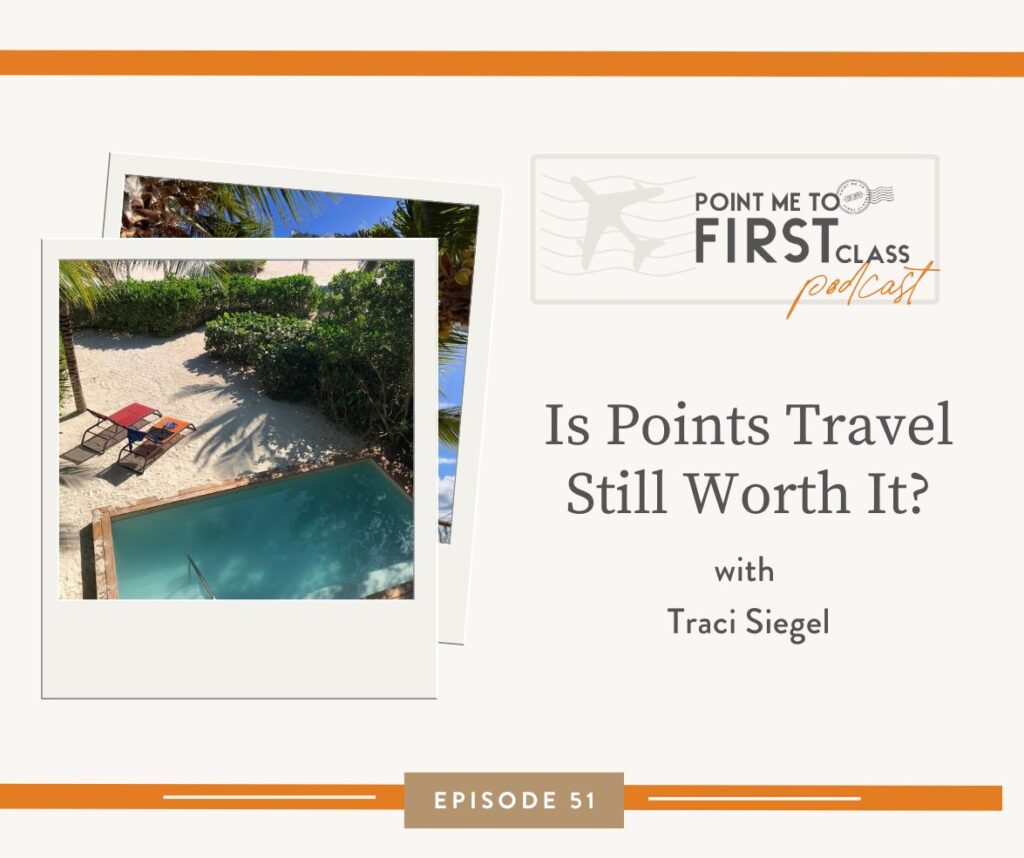February 19, 2024
Is Points Travel Still Worth It? With Traci Siegel
Episode Description
Today is a sad day for points travel. Some recent negative changes to award booking programs and credit card eligibility rules are making it harder for us as travel hackers and points travelers. So is it still worth learning how to earn and use points now, or are all the best opportunities already gone? I have the perfect guest on today’s show to answer this question.
My guest this week is points expert Traci Siegel, a non-practicing attorney who has been using miles and points to travel around the US and the world with her family of four since 2011. She’s been teaching friends how to hack their families’ travel for years, and now she’s teaching even more new friends how to expand their travel budgets through her Instagram.
Tune in this week to discover the recent announcements that are changing the face of points travel and learn whether earning points is still worth it. Traci and I are discussing how we plan to keep getting value from points and awards programs, even as the points landscape changes, sometimes dramatically, over the years.
To be the first to know when my Points Made Easy course reopens for enrollment, join the waitlist here!
What You’ll Learn from this Episode
- Some of the recent changes we’re seeing in the points travel landscape and how they’ll impact you.
- How the points game has changed since Traci started in 2011.
- Why some changes to the points landscape take opportunities away, and some changes create even better ones.
- The opportunities that are available now in points travel that weren’t imaginable just 10 years ago.
- How to find the positives in the changes we’re seeing in frequent flier programs and credit card eligibility.
- Why strategy is more important than ever before to maximize the points you can earn and use.
- Traci’s favorite awards programs, tools for staying organized, and tips for anyone getting started.
Featured on the Show:
- Follow me on Instagram
- Send me an email
- Get on the waitlist for the Points Made Easy Course here!
- Get My Cash-Back Credit Card Cheat Sheet!
- Traci Siegel: Website | Instagram | TikTok
- Punch Drunk Love – Movie
- Travel Freely: Points & Miles App: Apple | Android
Click here to download full episode transcript

Enjoy the Show?
- Don’t miss an episode, follow the podcast on Apple Podcasts, Spotify, Stitcher, or RSS.
- Leave me a review in Apple Podcasts.
Point Me to First Class is the show for professionals and business owners with higher-than-average personal or business expenses, who want to learn to leverage these expenses into credit card points they can spend on travel.
Each week, I share valuable tips, tools, and strategies to help you uplevel your skills earning and redeeming credit card points, so you can expand your travel and expand your experiences.